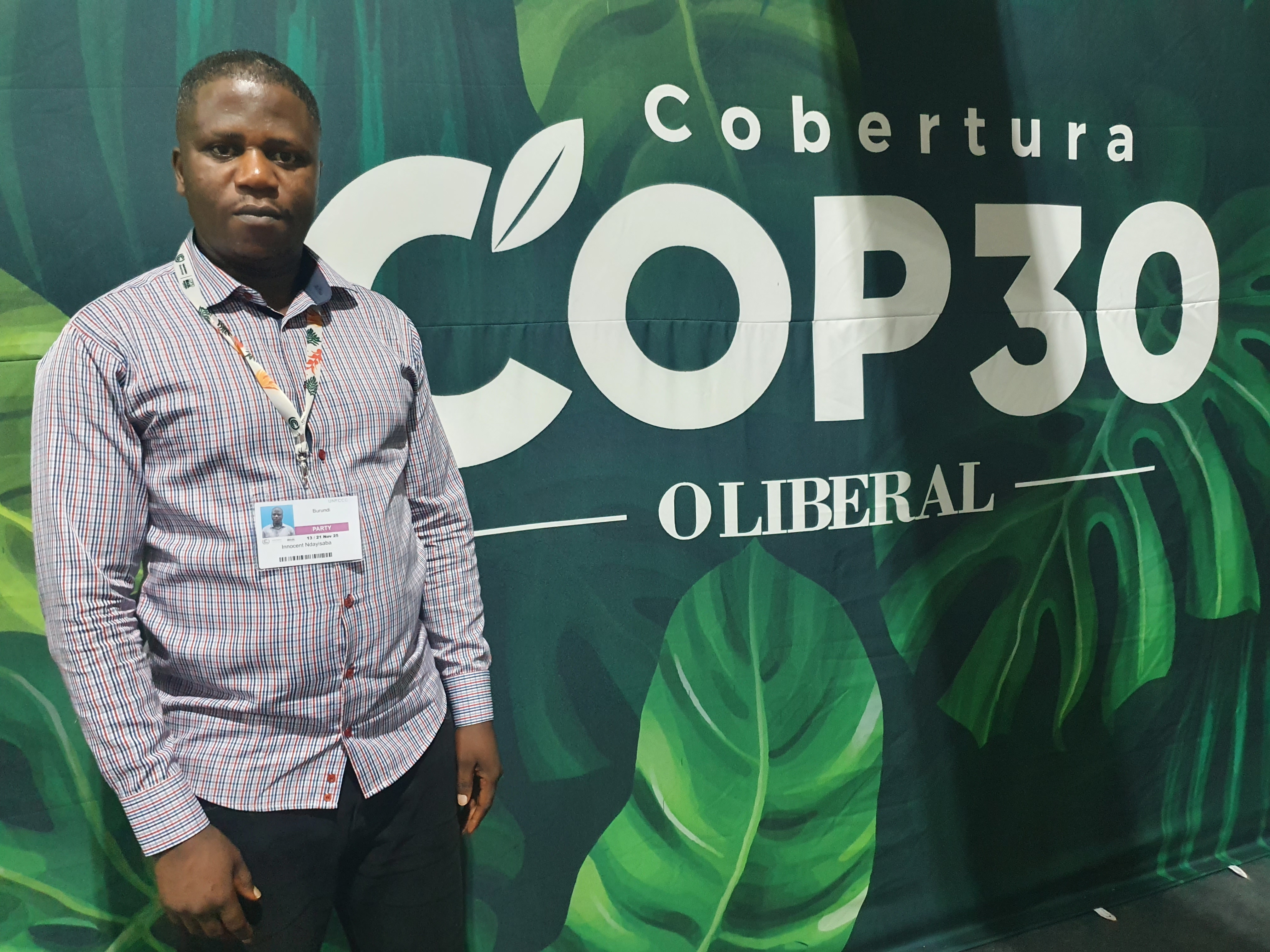At the Thirtieth Conference of the Parties (COP30) to the United Nations Framework Convention on Climate Change (UNFCCC) in BELEM, BRAZIL, as the Negotiator on the topic: "Mitigation"
Mitigation efforts include a transition to renewable energy sources, improved energy efficiency, the adoption of regenerative agricultural practices, and the protection and restoration of forests and sensitive ecosystems.
As the era of warnings gives way to that of consequences, humanity is confronted with a fundamental truth: mitigating climate change is no longer one option among others, but rather the essential condition of our daily lives. This powerful declaration from the Brazilian Presidency of COP30 paves the way for the next major climate conference.
As a young climate negotiator from a developing country, I am attending COP30 with a profound sense of urgency. For my community, climate change is not a theory; it is a matter of daily life. We have already witnessed the devastating effects of climate change in our country. This COP must be an opportunity to finally translate our commitments into concrete action, to move from words to deeds. Because it is being held in Brazil, these negotiations must address the combined challenges of climate change, biodiversity loss, and human rights, in order to achieve a truly just transition to a clean economy for all.
My focus at the climate negotiations will be on mitigation. This issue interests me most in climate negotiations, as it will help us withstand the growing impacts of greenhouse gas emission reductions in the fight against global warming.
My greatest hope is that COP30 will accelerate mitigation funding to achieve the implementation of Nationally Appropriate Mitigation Measures (NAMs) that improve agricultural productivity, strengthen food security and rural development, while simultaneously reducing greenhouse gas (GHG) emissions for sustainable development.
"Without mitigation, climate change exacerbates poverty, destroys livelihoods, destroys agro pastoral activities, and worsens deforestation, and so on."
What is climate change mitigation?
Climate change mitigation refers to any measures taken by governments, businesses, or individuals to reduce or avoid greenhouse gases, or to develop carbon sinks that remove them from the atmosphere. These gases trap the sun's heat in the Earth's atmosphere, warming it.
Since the beginning of the industrial era, human activities have led to the release of greenhouse gases at alarming levels, causing global warming and climate change. However, despite unequivocal research on the impact of various activities on the planet's climate and a growing awareness of the serious danger that climate change poses to different societies, greenhouse gas emissions continue to rise. If we can slow this increase in greenhouse gases, we can slow the pace of climate change and avoid its worst consequences.
How can we reduce greenhouse gas emissions?
Greenhouse gas emissions can be reduced through the following means:
- Shifting away from fossil fuels: Fossil fuels are the main source of greenhouse gases. It is therefore essential to switch to modern renewable energy sources such as solar, wind and geothermal energy, and to promote sustainable modes of transport.
- Improving energy efficiency: Consuming less energy in general – in buildings, industry, public and private spaces, energy production and transmission, and transportation – helps reduce emissions. This can be achieved through thermal comfort standards, better insulation and energy-efficient appliances, as well as by improving the design of buildings, energy transmission systems and vehicles.
- Modify agricultural practices: Some agricultural methods release large quantities of methane and nitrous oxide, which are potent greenhouse gases. Regenerative agricultural practices, including improving soil health, reducing livestock-related emissions, no-till farming techniques, and using cover crops, promote mitigation, improve resilience, and reduce the financial burden on farmers.
- Preserve and sustainably manage forests: Forests act as carbon sinks, absorbing carbon dioxide and reducing the overall concentration of greenhouse gases in the atmosphere. Measures to curb deforestation and forest degradation are essential for mitigating climate change and offer numerous additional benefits, such as protecting biodiversity and improving water cycles.
- Restore and preserve sensitive ecosystems: In addition to forests, ecosystems such as wetlands, peatlands and grasslands, as well as coastal biomes like mangrove forests, also contribute significantly to carbon storage, while promoting biodiversity and strengthening resilience to climate change.
- Create an enabling environment: Investments, policies and regulations that encourage emissions reductions, such as incentives, carbon pricing and emissions limits in key sectors, are essential to promote mitigation of the effects of climate change.
What is the 1.5°C target and why do we need to stick to it?
In the United Nations Framework Convention on Climate Change, the member parties adopted the Paris Agreement, a landmark international treaty aimed at curbing global warming and addressing the effects of climate change. Its primary goal is to limit the increase in the average global temperature to well below 2°C above pre-industrial levels, and to pursue efforts to limit the increase to 1.5°C.
The 1.5°C target is extremely important, particularly for vulnerable communities already suffering the severe consequences of climate change. Limiting warming to less than 1.5°C will result in fewer extreme weather events and less sea-level rise, fewer threats to food production and access to water, a slowdown in the loss of biodiversity and ecosystems, and a reduced risk of irreversible climate impacts.
In terms of climate mitigation, two concrete and measurable results are needed to strengthen our resilience and unlock the necessary funds:
Ø First, we must finalize the Global Mitigation Goal. We have come a long way, but the agreed framework must now be translated into concrete and measurable actions. The challenge in Belem will be to agree on indicators for the means of implementation, particularly regarding funding and support. A goal without a clear mechanism for monitoring and holding donors accountable for their support is nothing but an empty promise.
Ø Secondly, we must provide funding in the form of grants. Mitigation projects do not offer the same easy returns on investment as other projects, which is why public funding in the form of grants, on very favorable terms, must be prioritized. We need clear and concrete commitments to accelerate the disbursement of these funds by simplifying access so they reach the most vulnerable communities and ensuring a direct flow so that a significant portion reaches the local and regional entities best positioned to implement solutions. By accelerating and providing mitigation funding now, we proactively minimize future losses and damages that will inevitably cost the international community much more.
In preparation for this crucial COP, I participated in various training and support sessions, including those focused on technical skills and well-being, such as those offered by the Climate Leadership Initiative (CLI), and I took a virtual training course delivered by the African Group of Negotiators Support Expert (AGNES) initiative related to the training program on governance, diplomacy and climate negotiations, the principles of diplomacy, leadership and well-being strategies to maintain national, regional or international climate resilience.
For negotiators from developing countries, these initiatives are essential to maintaining their engagement. We often lack the funding and support throughout the year that are so vital to continuing to participate in negotiations and strengthening our contribution. We carry the weight of our nations, having to read complex and lengthy policy documents and prepare detailed policy interventions, all while remaining calm, well-prepared, and focused under intense pressure. The training, mentorship, and sense of community offered by the CLI are essential to sustaining our efforts and preventing burnout. I am grateful to be part of a community that understands that effective diplomacy requires both technical skills and strong personal resilience.
During and at the end of COP30, my expectations that I can share are:
- To contribute to simplifying access to the Mitigation Response Fund so that vulnerable countries (developing countries) can benefit from it more quickly and easily.
- To meet with and learn from technical experts in climate negotiations, particularly those focused on mitigation. I wish to deepen my knowledge and skills for the benefit of my country and my African Group of Negotiating (AGN).
- To understand how other vulnerable countries are coping with losses related to climate change. I am confident that my delegation, and especially my communities, support me, and I am therefore very pleased to be here to voice the concerns of my community and my region, and I hope that we will achieve something positive.



